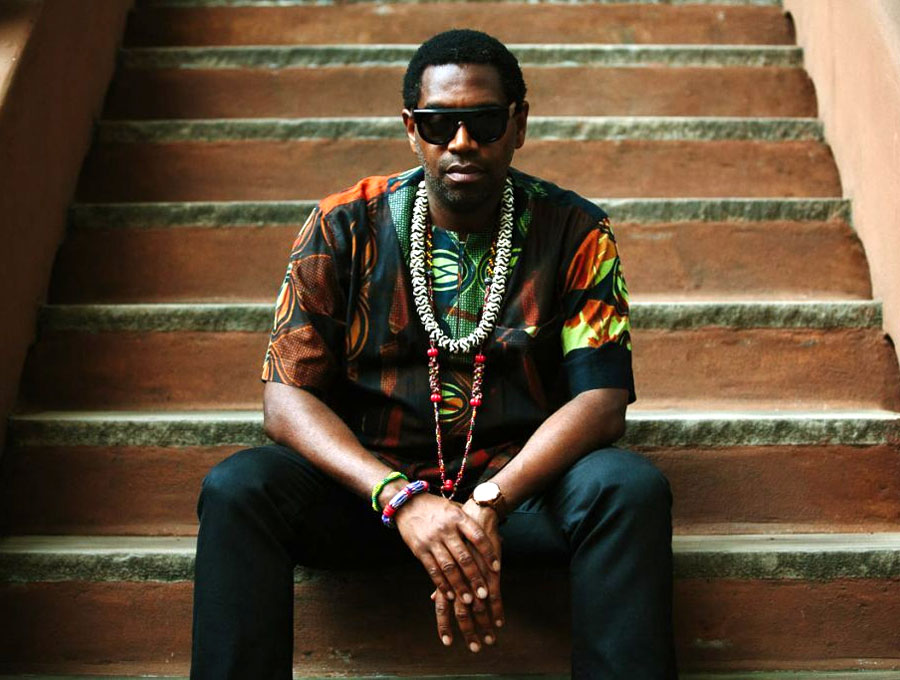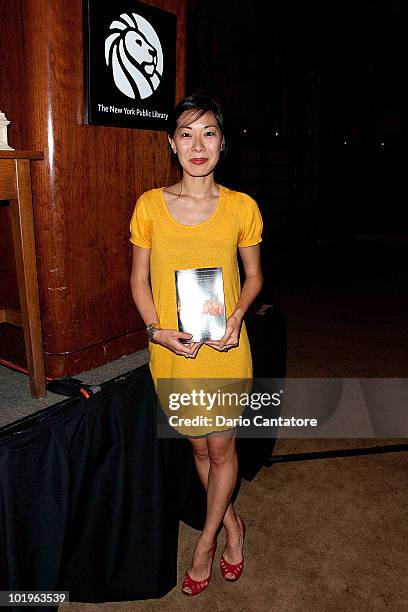
Yosvany Terry Explores Afro-Cuban Musical Traditions
admin
- 0
Yosvany Terry is a celebrated figure in the realm of Afro-Cuban music, whose journey intricately weaves together the rich tapestry of Cuban musical traditions and the profound influences of the African diaspora. As a senior lecturer at Harvard, he passionately leads the Harvard Jazz Ensembles while continuously exploring the cultural connections between West Africa and Cuba. His recent travels to Benin deepened his understanding of these traditions and inspired him to share this knowledge with his students and the wider community. Through performances like those on ArtsThursdays, Terry cultivates a unique dialogue between historical music practices and contemporary jazz, emphasizing the importance of safeguarding cultural identity. As he prepares for his upcoming performance on May 1, audiences can anticipate a vibrant showcase of how ancient musical roots inform modern artistry.
Yosvany Terry stands at the intersection of tradition and innovation, bridging the historical and contemporary landscapes of music. His work reflects a deep dedication to preserving the legacies of African cultural practices within modern compositions. By engaging with the vibrant rhythms and melodies derived from the African diaspora, he not only enriches the educational experience at Harvard but also elevates the importance of Cuban artistic expressions. His initiatives, especially within the Harvard Jazz Ensembles, promote a collaborative spirit among diverse musical genres. Events such as ArtsThursdays serve as a crucial platform for celebrating these artistic legacies, encouraging broader engagement with the arts across academic disciplines.
Exploring Afro-Cuban Music Heritage
Afro-Cuban music represents a unique confluence of African and Cuban musical traditions, evolving from the deep roots of the African diaspora. This rich musical tapestry was shaped through centuries of cultural exchange and resistance, as enslaved Africans preserved elements of their heritage while adapting to new environments. Yosvany Terry’s immersion in these traditions, particularly during his recent journey to Benin, sheds light on the intricate connections between West African music and Cuban genres, thereby enhancing our understanding of their mutual influences. By investigating these links, we see how Afro-Cuban music acts as a living testament to cultural identity and resilience.
In Yosvany Terry’s research, we witness his commitment to exploring the significance of musical ancestry and its implications for contemporary arts. As he uncovers the sounds and rhythms that have transcended oceans and generations, Terry recognizes the importance of safeguarding these traditions. His findings not only enrich his compositions but also serve as valuable educational material, granting students insight into the roots of their practices. The intertwining of Afro-Cuban melodies with modern jazz highlights the ongoing dialogue between past and present, resonating within the hearts of musicians striving to honor their cultural lineage.
Yosvany Terry as a Cultural Ambassador
As a senior lecturer and director of the Harvard Jazz Ensembles, Yosvany Terry embodies the spirit of a cultural ambassador. His dedication to integrating Afro-Cuban heritage into academic settings is a pivotal aspect of his teaching philosophy. By fostering dialogues between diverse musical traditions, he creates a learning environment that encourages students to pursue their artistic inquiries with authenticity. The impact of his educational initiatives reverberates through the halls of Harvard, inspiring young musicians to explore the broader context of their craft and connect it to the historical narratives of the African diaspora.
Terry’s role transcends that of a traditional educator; he serves as a bridge linking the rich musical legacy of Africa with contemporary iterations found in jazz and beyond. By engaging with artists from varying backgrounds and facilitating performances such as the upcoming ‘Imaginary Dialogues: Dahomey,’ he showcases the relevance of these traditions in modern contexts. His work continues to remind us that the preservation and celebration of heritage are vital for cultivating a vibrant artistic community, where stories from the past inform the creations of tomorrow.
Harvard Jazz Ensembles: A Cross-Cultural Hub
The Harvard Jazz Ensembles, under the direction of Yosvany Terry, have become a dynamic platform for the fusion of musical styles and cultural identities. By inviting guest artists and collaborating with educators across disciplines, Terry enriches students’ experiences, allowing them to engage with diverse genres like Afro-Cuban and classical jazz. This cross-cultural approach not only enhances technical skills but also fosters a deeper understanding of the historical contexts that shape these musical forms. Students are exposed to the vibrancy of global sounds, bridging traditional influences with innovative expressions.
The ensembles serve as a microcosm of the broader movement to incorporate varied musical traditions into the fabric of education. Terry emphasizes the significant role that travel and direct engagement with artists play in the learning process. By arranging visits to Cuba and the Dominican Republic, he exposes students to authentic musical environments, encouraging them to learn from masters of their craft. This immersive approach to education illustrates how jazz, particularly when infused with Afro-Cuban influences, can create connections that resonate far beyond the classroom.
The Role of ArtsThursdays in Cultural Exchange
ArtsThursdays stands out as an initiative that promotes cultural exchange and artistic expression within Harvard and its surrounding communities. Through diverse performances and interactive sessions, this platform allows for an exploration of various art forms, including music, dance, and visual arts. Yosvany Terry’s involvement highlights the initiative’s success in bridging academia with vibrant artistic communities. The program not only showcases the talents of Harvard faculty and students but also invites local audiences to engage with groundbreaking performances—making art accessible to all.
By spotlighting artists like Yosvany Terry, ArtsThursdays contributes to a broader discourse on the significance of Afro-Cuban music in contemporary art. Terry’s upcoming performance is a testament to the initiative’s commitment to celebrating cultural richness while fostering collaboration among disciplines. Such events encourage students and attendees alike to appreciate the narratives woven within each performance, recognizing the historical and cultural ties that unite us through music. ArtsThursdays exemplifies how art can transcend boundaries, connecting disparate communities in a shared celebration of creativity.
Connecting Music and Identity through Research
Yosvany Terry’s research emphasizes the profound connections between music and identity—particularly within the context of the African diaspora. By exploring the roots and evolution of Afro-Cuban music, Terry uncovers the historical threads that link Cuban musical practices back to West African traditions. His commitment to understanding how these cultures have influenced contemporary music is key in fostering an appreciation for the resilience embedded within these art forms. Students are exposed to these valuable insights, enabling them to shape their own identities as musicians, deeply rooted in history yet open to innovation.
As he prepares to integrate his findings into compositions and instructional material, Terry highlights the importance of a collaborative framework in contemporary music education. His vision encourages students to approach music as a living narrative—one that is shaped by cultural dialogues and shared experiences. By grounding their learning in the realities of Afro-Cuban and African musical traditions, students can emerge as informed artists who contribute to a diverse musical landscape, ensuring that these vital histories are remembered and celebrated.
Faculty Collaboration: Expanding Musical Horizons
The collaboration among faculty at Harvard plays a pivotal role in enhancing the musical experience for students involved in the Jazz Ensembles. Yosvany Terry’s efforts to build connections with colleagues across disciplines open avenues for innovative projects that challenge traditional boundaries of music and arts education. For instance, his partnership with experts in technology and engineering not only enriches the curriculum but also introduces students to contemporary methods of music composition and performance, cultivating an environment where creativity flourishes.
By encouraging interdisciplinary collaboration, Terry showcases the relevance of diverse perspectives in understanding musical traditions like Afro-Cuban music. This approach promotes a holistic understanding of arts, emphasizing how different fields can inform each other. Students benefit from learning about the intersectionality of music, technology, and cultural histories, preparing them for multifaceted careers in the arts. As Harvard continues to champion collaboration, the potential for innovative artistic expressions grows, driven by the rich tapestry of cultural influences such as those found in the African diaspora.
Future of the Arts at Harvard: A Vision for Inclusion
Looking ahead, Yosvany Terry envisions a vibrant and inclusive arts landscape at Harvard that embraces diverse musical traditions. This vision is rooted in a commitment to expanding offerings, with a focus on engaging artists from various backgrounds who can contribute to the richness of the curriculum. By inviting guests who specialize in Afro-Cuban and African musical traditions, Terry aims to create opportunities for students to interact with a wide spectrum of artistic practices, thereby fostering a deep appreciation for the interconnectedness of cultures.
The ongoing evolution of music programs at Harvard highlights the necessity of keeping pace with the diverse musical landscape around the world. By encouraging initiatives like the Harvard University Committee on the Arts (HUCA), Terry believes that the future holds the potential for more robust engagement with the community. It is a future where every student, regardless of their background, can find a space to explore their passions and connect with the legacy of cultural traditions like Afro-Cuban music, ensuring that these vital contributions continue to thrive.
Performing Arts: Bringing Culture to Life
Performing arts serve as a dynamic vessel for cultural storytelling and expression, especially within the context of Yosvany Terry’s work at Harvard. His upcoming performance at ArtsThursdays exemplifies how live music can weave together narratives of history, identity, and cultural exchange. This event not only showcases talented performers but also creates a platform for dialogue surrounding Afro-Cuban musical traditions and their evolution over time. Through such performances, audiences can engage with art on a personal level, experiencing the vitality of cultural heritage firsthand.
Terry’s dedication to bringing these traditions to life emphasizes the role of performance as a conduit for education and community engagement. Each concert provides an opportunity for attendees to explore the rich narratives underlying the music, while also fostering broader public appreciation for Afro-Cuban influences. As Harvard continues to prioritize artistic programming, events like ArtsThursdays offer a window into the transformative power of the performing arts, reminding us of the enduring legacy of cultural traditions and their relevance in today’s society.
The Impact of Travel on Musical Education
Traveling serves as a potent educational tool for students at Harvard, especially in Yosvany Terry’s Jazz Ensembles. Through immersive experiences in countries like Cuba and the Dominican Republic, students gain invaluable insights into the cultural and historical contexts that shape Afro-Cuban music. These trips are designed not merely for tourism but for deep engagement with local musicians and traditions, thereby enriching students’ understanding of jazz and its roots in the African diaspora.
The interactions facilitated by travel allow students to hear firsthand from practitioners of Afro-Cuban music, enhancing their learning and performance skills. In doing so, they connect with the historical narratives associated with the music they study, fostering a sense of responsibility to carry these traditions forward. Terry’s approach underscores the importance of experiential learning, reinforcing the idea that to truly understand music, one must experience it within its cultural context and engage with the communities that continue to keep these traditions vibrant.
Frequently Asked Questions
Who is Yosvany Terry and what role does he play in Afro-Cuban music?
Yosvany Terry is an internationally acclaimed musician and composer renowned for his contributions to Afro-Cuban music. As a senior lecturer at Harvard and director of the Harvard Jazz Ensembles, he merges his Cuban heritage with musical traditions from the African diaspora, aiming to preserve and promote these cultures through education and performance.
How has Yosvany Terry contributed to understanding African diaspora music in the Americas?
Yosvany Terry’s research focuses on the links between African musical traditions and contemporary forms of music in the Americas, particularly jazz. His travels to Benin and Cuba explore how these traditions influenced Afro-Cuban music and American jazz, emphasizing the importance of cultural roots and identity.
What is the significance of ArtsThursdays in relation to Yosvany Terry’s work?
ArtsThursdays is a vital initiative that showcases the artistic endeavors of faculty like Yosvany Terry. It raises the profile of Afro-Cuban music and other artistic expressions at Harvard, fostering community engagement while promoting collaborative projects across disciplines.
How does Yosvany Terry incorporate traditional Cuban musical elements into his compositions?
Yosvany Terry integrates traditional Cuban musical elements by drawing on his research in Benin and his Cuban heritage. This approach enriches his compositions, allowing him to create works that resonate with the historical and cultural significance of African diaspora music, such as jazz.
What unique educational experiences does Yosvany Terry provide for his students at Harvard?
Through his role as director of the Harvard Jazz Ensembles, Yosvany Terry offers students unique educational experiences, including travel to countries like Cuba and the Dominican Republic. These trips feature direct engagement with local musicians and educators, allowing students to immerse themselves in Afro-Cuban music and learn about its cultural significance.
How does Yosvany Terry view the connection between music and identity in Afro-Cuban culture?
Yosvany Terry believes that music is a crucial element in expressing and preserving identity within Afro-Cuban culture. His research illustrates how traditional music not only reflects cultural heritage but also serves as a form of resistance against assimilation, safeguarding the community’s cultural practices and values through generations.
What are Yosvany Terry’s aspirations for the future of arts education at Harvard?
Yosvany Terry hopes to further expand the arts education at Harvard by diversifying musical offerings to include a wider range of Afro-Cuban and African musical traditions. He advocates for bringing in leading artists and fostering cross-disciplinary collaborations to enrich student learning and elevate the overall arts presence at the University.
In what ways does Yosvany Terry connect his research to his performances?
Yosvany Terry connects his research to performances, such as his upcoming concert at ArtsThursdays, by blending insights gained from his studies in Benin and Cuba into his music. This approach showcases the dialogue between traditional Afro-Cuban music and contemporary forms, providing audiences with a rich understanding of the cultural connections.
How does Yosvany Terry perceive the evolution of jazz at Harvard over his tenure?
Yosvany Terry has witnessed significant growth in Harvard’s jazz program over the past decade, with increased focus on incorporating diverse musical traditions. He envisions a future where various arts converge, and students gain comprehensive insight into the rich tapestry of Afro-Cuban music and its impact on American jazz.
What impact does Yosvany Terry hope to have on his students through his teaching methods?
Yosvany Terry aims to ignite curiosity and deepen understanding of jazz history and Afro-Cuban musical traditions among his students. By providing them with rich educational experiences and connecting them with master artists, he hopes to inspire them to become lifelong advocates for these cultural art forms.
| Key Areas | Insights |
|---|---|
| Research Theme | Exploring musical traditions from Benin to Cuba. |
| Cultural Safeguarding | Understanding how cultural traditions were maintained and influenced by the African diaspora. |
| Educational Impact | Bringing primary source material to students and showing its influence on modern jazz and identity. |
| Artistic Development | Creating new works inspired by traditional forms, including an opera based on historic events in Cuba. |
| Collaboration at Harvard | Integrating learning across disciplines enhances the educational experience for music students. |
| Community Engagement | ArtsThursdays initiative raises the profile of arts within Harvard and the local community. |
| Future Aspirations | Expand and diversify the arts offerings at Harvard over the next decade. |
Summary
Yosvany Terry’s exploration into the rich interplay of musical traditions across different cultures is a testament to his commitment as a musician and educator. His dedication to understanding how these elements connect, influences music creation, and enriches the lives of his students at Harvard. By encapsulating the essence of these traditions, he not only preserves cultural legacies but also inspires new generations to appreciate and advocate for the arts. As he prepares for his upcoming performance, the lessons drawn from his research will undoubtedly resonate, bridging the past with the present and influencing the future of jazz and cultural expression.

